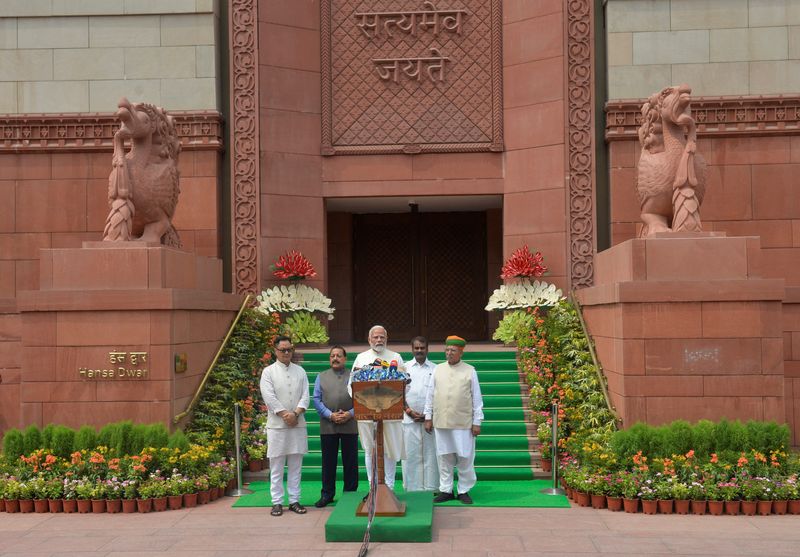MUMBAI (Reuters) -Indian Prime Minister Narendra Modi passed the first big political test of his third term on Wednesday as a candidate from the ruling coalition was elected speaker of the lower house of parliament, defeating an opposition lawmaker.
Modi's Bharatiya Janata Party (BJP) is having to rely on allies to run the government for the first time in a decade, while the opposition did much better than expected in a bitterly fought national election that ended this month.
The speaker's post was contested instead of being chosen by consensus, as is the usual practice.
The BJP's Om Birla, who was speaker in the last term of the house too, beat K. Suresh, an eight-time MP from the opposition Congress party by a voice vote, by estimating the volume of members shouting their assent or opposition.
The BJP-led National Democratic Alliance has 293 lawmakers in the lower house, known as the Lok Sabha, 21 more than the required majority of 272.
Congress spokesperson Jairam Ramesh said opposition parties did not insist on a formal vote and agreed to the voice vote because they wanted a "spirit of consensus and cooperation to prevail".
Congress leader Rahul Gandhi, who was declared the leader of the opposition late on Tuesday by his party, accompanied Modi as they congratulated Birla on his election, a rare show of harmony between the two bitter rivals.
This is the first time that Gandhi, 54, the scion of the Nehru-Gandhi family, will assume a statutory role in parliament that gives him the status of a cabinet minister.
"It is very important that the voice of the opposition is allowed to be represented in this house," Gandhi said in his speech while congratulating Birla.

"Of course, the government has political power, but the opposition also represents the voice of India’s people and this time, the opposition represents significantly more voice of the Indian people than it did last time.
The speaker, who conducts business in the decision-making lower house and presides over it, is critical to the passage of laws.